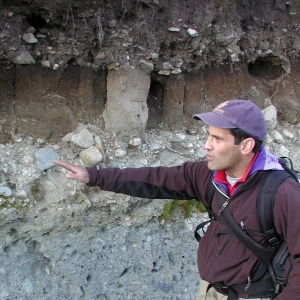Principal Investigator David Gillikin (Assistant Professor, Geology) and Co-PI Donald Rodbell (Professor/Chair, Geology) have been awarded an NSF Major Research Instrumentation (MRI) grant for their project, MRI: Acquisition of a Stable Isotope Ratio Mass Spectrometer for Interdisciplinary Research and Undergraduate Research Training. The grant provides the procurement of a continuous flow Delta V Plus isotope ratio mass spectrometer (IRMS) and supplemental components to support interdisciplinary research and research training. This equipment is needed for several ongoing and new research projects being conducted by PI Gillikin, Co-PI Rodbell, Senior Personnel Laura MacManus-Spencer (Associate Professor, Chemistry), Steven Rice (Professor, Biology), Kathleen LoGiudice (Associate Professor, Biology), Jeffrey Corbin (Associate Professor, Biology), and Anouk Verheyden-Gillikin (Associate Adjunct Professor, Geology) as well as Union students, and researchers from outside institutions. This instrumentation will allow us to generate high-resolution data on both spatial and temporal scales, helping us to address both basic and applied questions regarding the interaction of geochemical, atmospheric, hydrologic, and biotic systems.
Abstract
Stable isotope geochemistry is a key tool in many scientific disciplines. The proposed instrumentation will advance the PI and his students’ research in the development of paleoenvironmental/paleoclimatic proxies from bivalve shell geochemistry, and the application of these proxies to document impacts of historical land use change across Africa as well as the carbon cycle around the Cretaceous – Paleogene boundary. In addition, the proposed instrumentation will accelerate (and foster undergraduate student involvement in) the co-PI’s current paleoclimate research that involves the stable isotopic composition of lacustrine carbonates from Peruvian lake sediment cores that span the late glacial and Holocene. In addition, several other research projects will benefit from the proposed instrumentation such as projects involving: paleolimnology, paleoceanography, ice-core studies, dendrochemistry, the development of peat moss as a climate proxy, soil nutrient and plant ecology, and tick-borne disease ecology.

